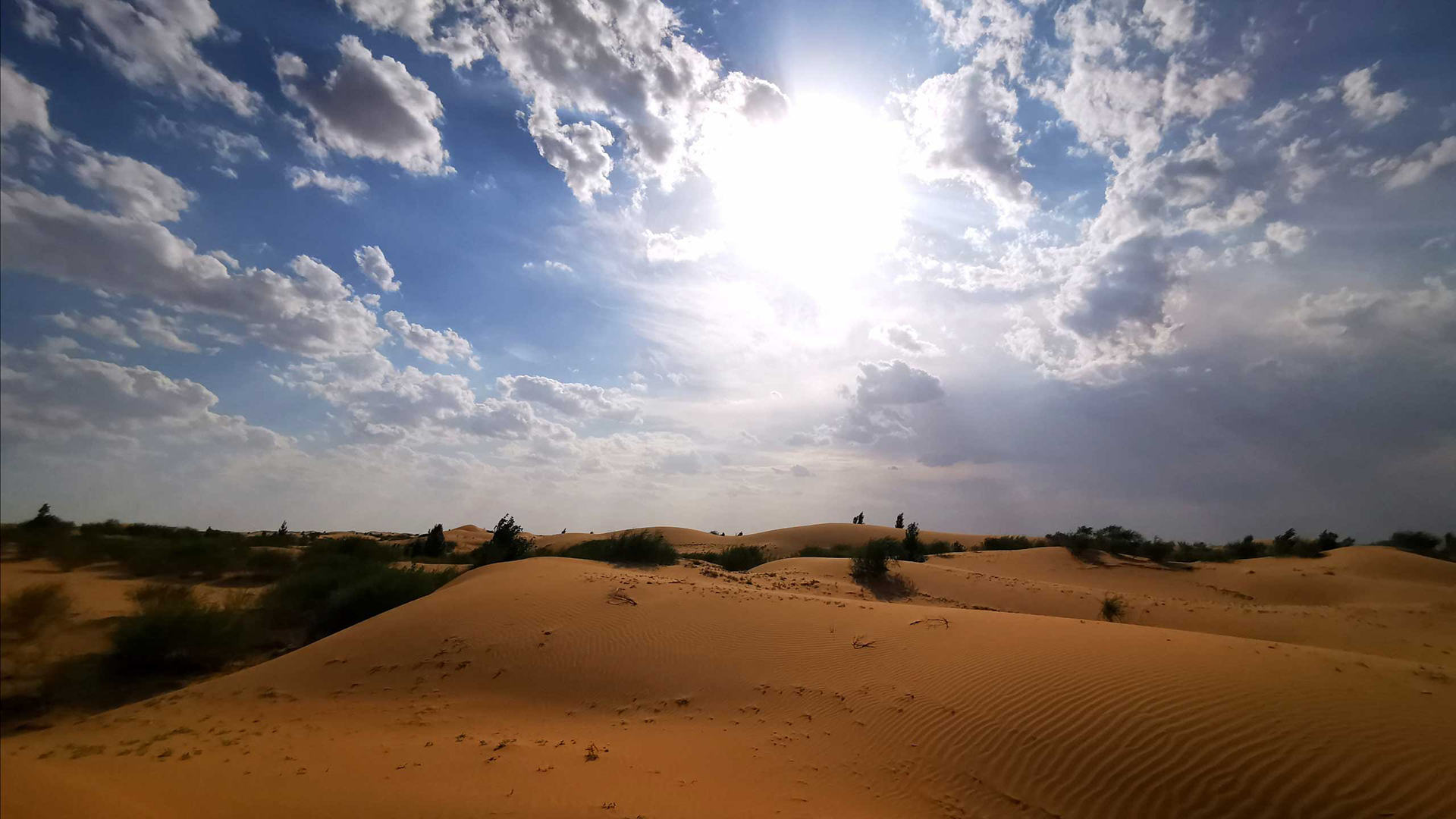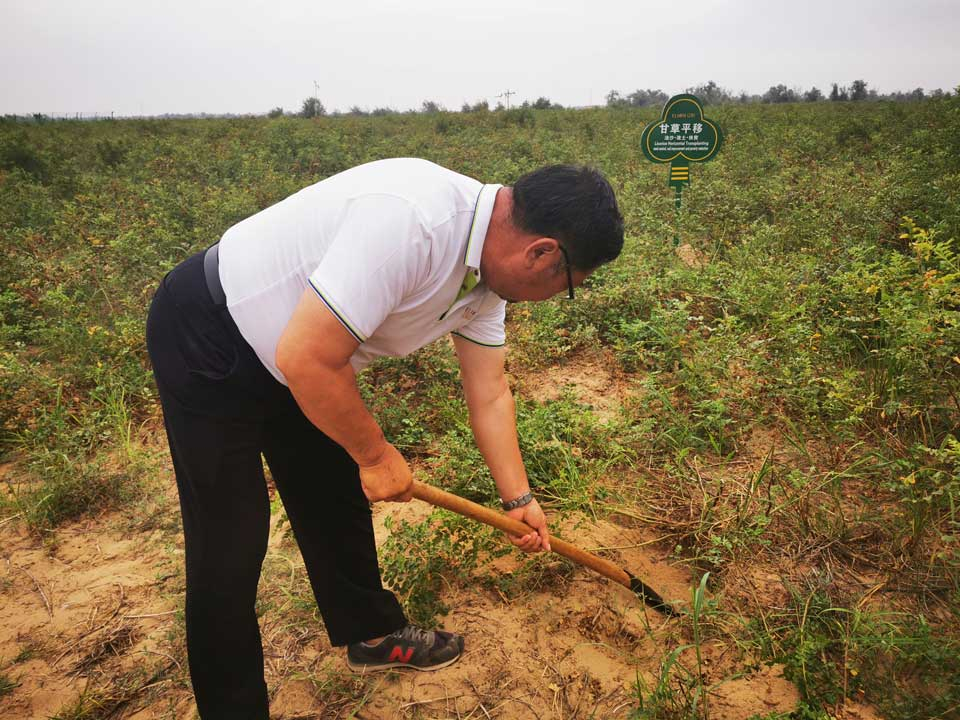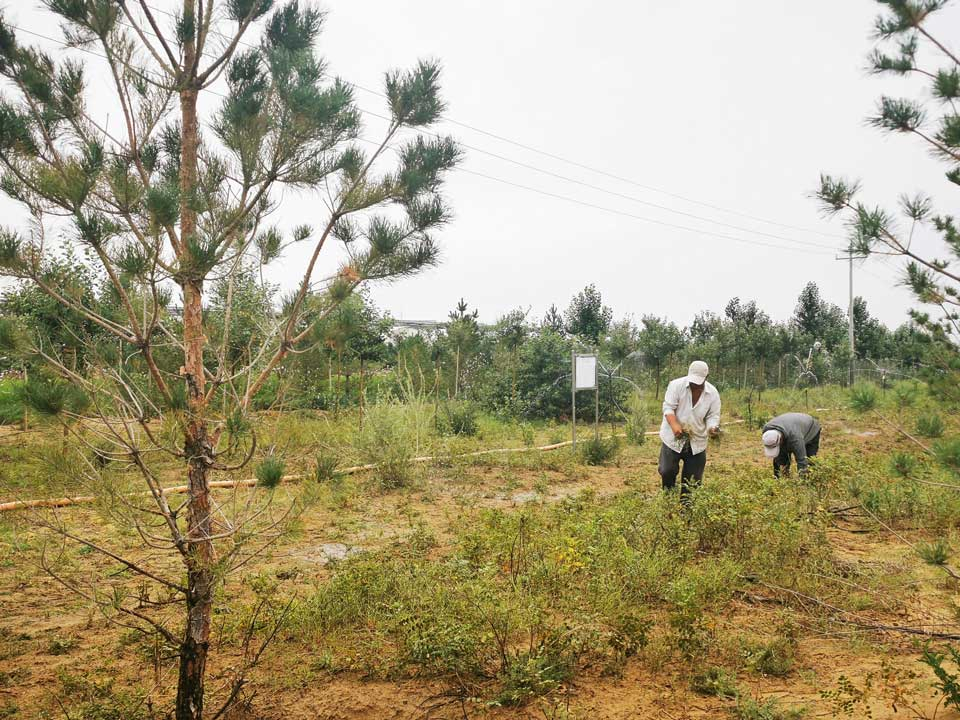

Desert control is a common challenge facing the international community. China's Kubuqi desert is offering a triple-win solution for government, residents and enterprises. This comes as the 7th Kubuqi International Desert Forum wrapped up on July 28 in Ordos, Inner Mongolia Autonomous Region.
People say where there is green in Kubuqi, there are licorice trees. The tree is known as the top eco-restoration plant in this area, but it also has another name — the king of Chinese herbal medicine.
The secret lies in its root, which has been widely used in many traditional Chinese medicine (TCM) treatments, such as easing sore throat and stomachaches, as well as fighting infections.

The secret of licorice lies in its root, which has been widely used in many traditional Chinese medicine (TCM) treatments. /CGTN Photo
Yan Hekuan is among more than 6,000 local herdsmen involved in growing the valuable plant.
"Every time, we sign a three-party deal with the company and the government for a three to five-year term. They provide us with land and facilities, while we're responsible for maintaining the field. During the harvest, we make about 8 yuan for one kilogram of licorice," said Yan Hekuan.
By bringing a large number of locals into the land restoration project, the so-called Kubuqi model combines desert control with developmental goals. And that's where businesses like ELION can step in to pull residents out of poverty.
"We started teaching locals to grow licorice in the 1990s. Soon we developed the new horizontal planting technology that expands green areas and increases the yield. Meanwhile, our company can gain profits worth 100 million yuan or nearly 15 million U.S. dollars per year, from licorice-related products such as medicine and cosmetics," said Seren Wangjila, manager at Elion's licorice planting project.

More than 6,000 local herdsmen in Kubuqi are involved in growing the valuable licorice, led by the local government and the company Elion. /CGTN Photo
Finished products and planting techniques are on display during the 7th Kubuqi International Desert Forum. But this is not just about marketing, it's also about passing on Kubuqi's wisdom to the rest of the world.
"I think the spirit and main principle of Kubuqi can be applied in every dry area in the world. That's to do massive tree planting, but at the same time, it uses the market to provide products, renewable energy, eco-tourism. There are so many opportunities in the desert and that's what they have found," Erik Solhim, former Under-Secretary-General of the UN, told CGTN.
After 30 years of efforts, the vegetation coverage now takes up more than half of the Kubuqi desert. But locals say desert control is a career that will pass on from generation to generation.
(Video cover: After 30 years of efforts, the vegetation coverage now takes up more than half of the Kubuqi desert located in Inner Mongolia Autonomous Region. /CGTN Photo)

Copyright © 2018 CGTN. Beijing ICP prepared NO.16065310-3
Copyright © 2018 CGTN. Beijing ICP prepared NO.16065310-3